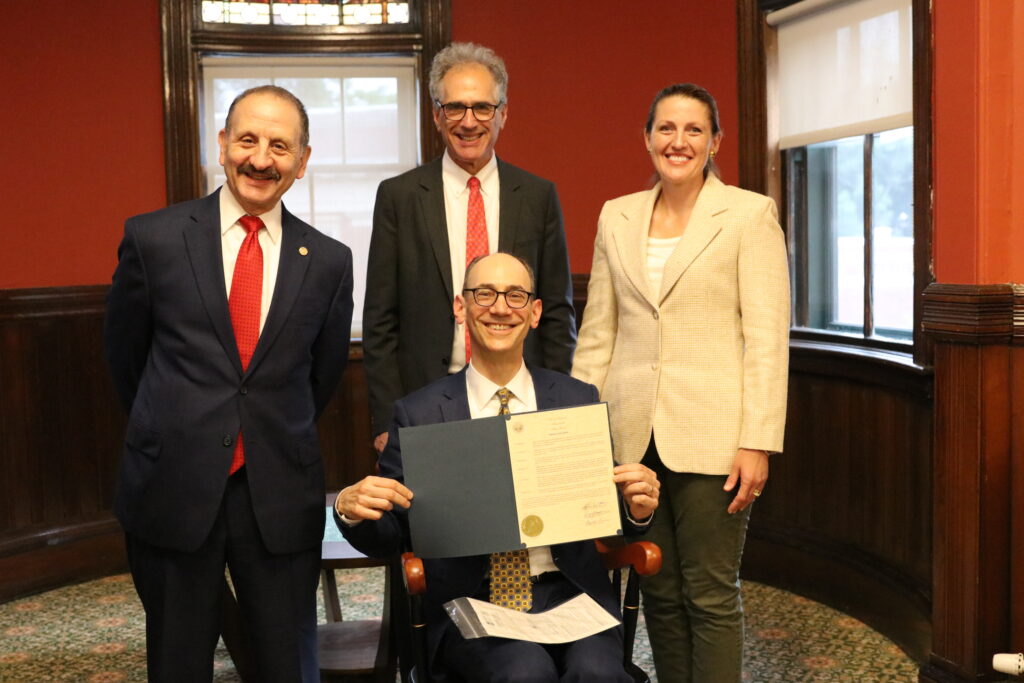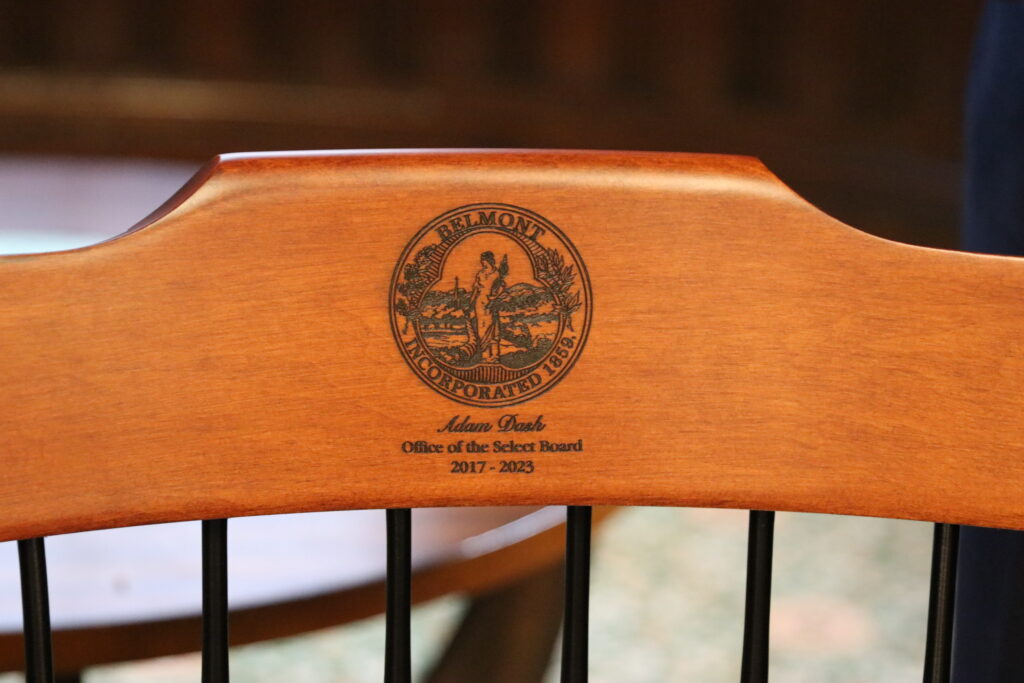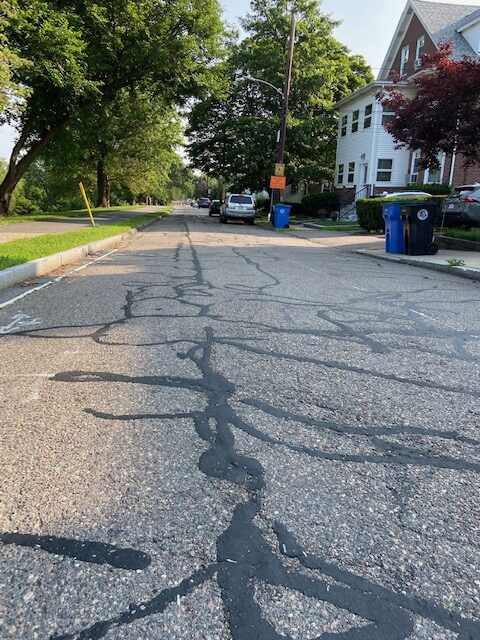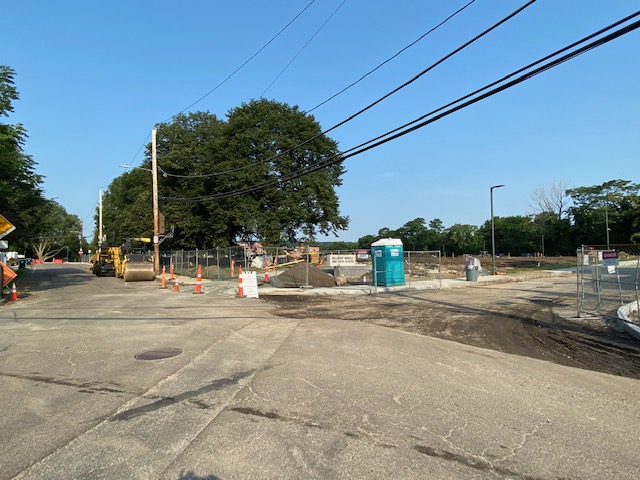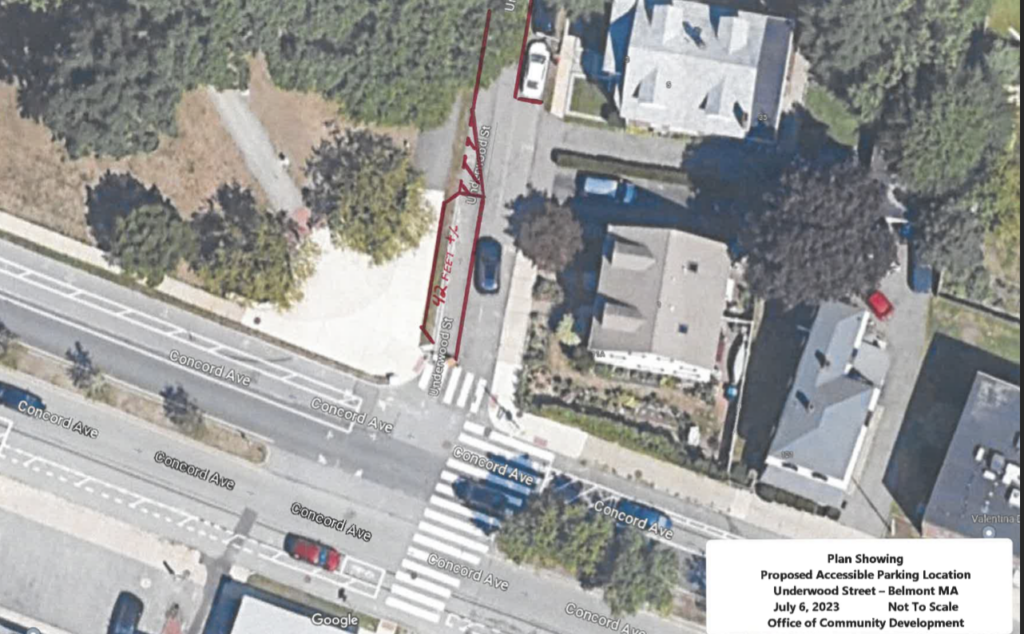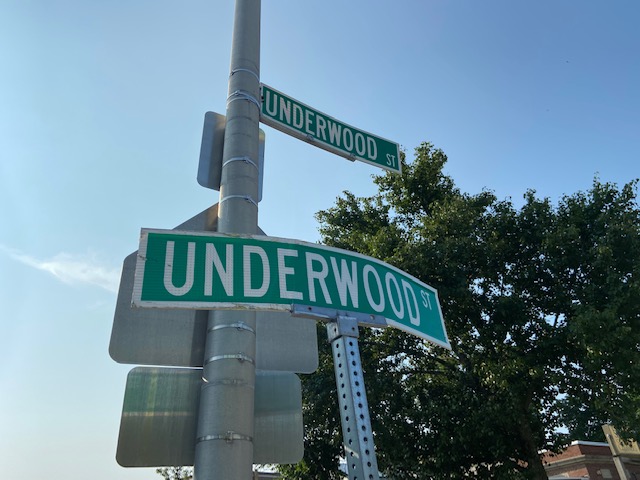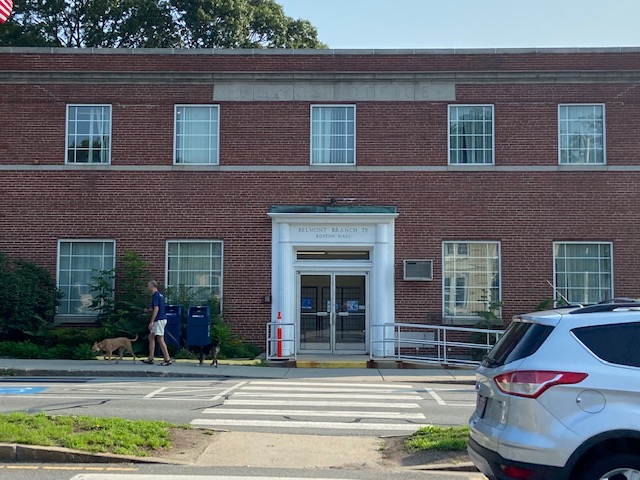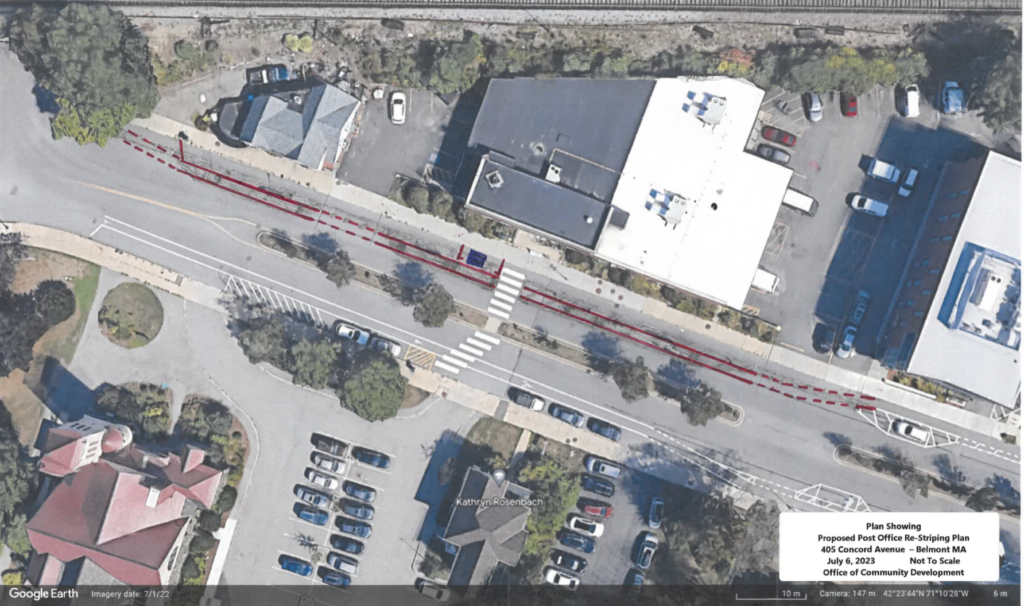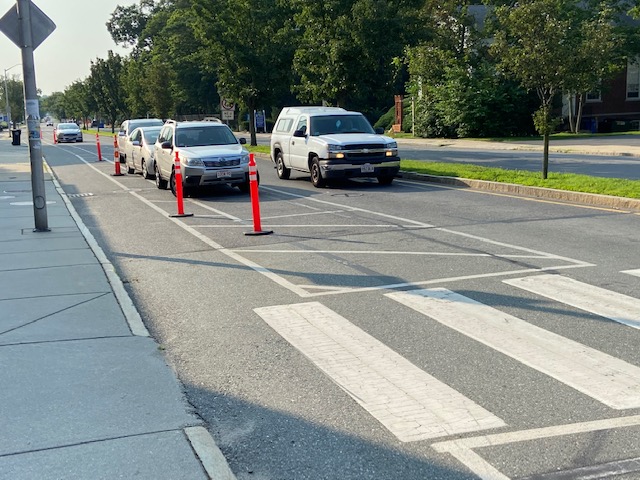Photo: The team: Treasurer Cabell Eames; Geoff Lubien, Campaign Chair Taylor Yates
Two days after Mark Paolillo said he would not run for re-election to the Belmont Select Board, the first candidate seeking to fill the open seat has thrown his hat into the ring.
Warrant Committee Chair Geoff Lubien arrived early Monday morning, Nov. 20, at the Town Clerk’s office to take out nomination papers. An eight-year veteran of the town’s financial watchdog group, Lubien launched his campaign committee for Select Board in the upcoming April 2 town election.
“Mark Paolillo’s retirement, coming after 12 years of distinguished service, comes at a critical time for our town as we face a longstanding fiscal deficit,” Lubien said in a press release dated Nov. 20. “It is imperative that the next Select Board Member understands how town government functions in conjunction with its volunteer committees and administration.”
“The next Select Board Member also needs to understand Belmont’s realities as we navigate our community’s needs with the Town’s budget. Serving as an elected Town Meeting Member and appointed member on several Committees for most of the past decade led me to make this important decision to run in 2024 to continue supporting and promoting what is best for our community,”
In a statement provided and released to the Lubien campaign, Paolillo said, “Geoff Lubien’s resume, strong financial skills, and years of town volunteerism are all highly impressive. I have enjoyed working with him over … the past several years as a member of the Financial Task Force II and the Warrant Committee.”
“Geoff is trustworthy and has proven he is deeply committed to doing what is best for the town of Belmont,” Paolillo continued.
Serving on his committee are Chair Taylor Yates, who sits on the Planning Board and is Chair of the Vision 21 Implementation Committee, and Treasurer Cabell Eames, who is Vice Chair of the Belmont Democratic Town Committee.
“Geoff is the experienced and steady leader Belmont needs because our current challenges require someone who knows how the levers of our government work and how to pull them to make Belmont better,” Yates said in the Monday press release.
“We are lucky to have a candidate with a deep understanding of Belmont during a fiscal crisis. We cannot think of anyone better than Geoff for this position and are proud to be a part of his campaign,” he said.


